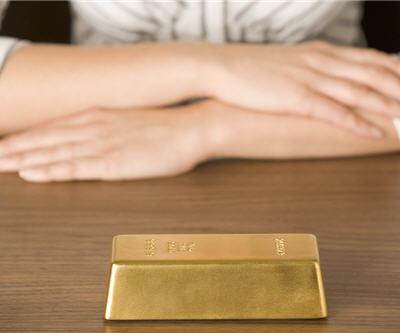Chatham House: Restoring the gold standard would hurt already damaged global financial system

Returning to the gold standard would be impractical and could even harm the financial system says a new report by London-based Chatham House.
That was the conclusion of the independent thin-tank’s global task force of experts set up to assess what role, if any, gold could play in the international monetary system in the wake of the current financial crisis.
The group acknowledges that gold bullion can serve as a hedge against the declining values of fiat currencies and that it plays a role as a reserve asset, but concludes that for the bullion to play a more formal role in the international monetary system, “it would be imperative that it neither hinders the system’s performance nor creates unacceptable constraints on national economic policies.”
While the gold standard no longer exists, institutions hold 30,877 metric tons of bullion reserves, valued at about $1.77 trillion, according to the UK research house.
Although the discipline a gold standard imposes on monetary policy may have been helpful in limiting the reckless banking and excessive debt accumulation of the past decade, the rigidity of a fixed price for gold would likely have been a serious handicap at the onset of the financial crisis when a much more flexible monetary response was required.
Chatham House also concludes that there is no clear-cut role for gold as a policy tool:
Indeed, the historical behaviour of the gold price does not provide a particularly good indicator for either monetary or fiscal policy. In fact, since the financial crisis, the rise in the gold price has indicated the need for tighter policies that, if implemented, could have been deeply damaging.
Gold can be useful for central banks, but bullion’s role as a hedge is not cost free, warns Chatham, as a major downside of holding gold is that its price can be extremely volatile.
Also, it generates no yield, other than capital gains, which are only realized when it is sold. Gold, therefore, can form part of a portfolio of assets that spreads valuation risk, but on the other hand, it is not very effective as a sole reserve asset.
Chatham House was founded in 1920 and is based in London. Members of the gold task force include Gerard Lyons, chief economist at Standard Chartered Plc, Meghnad Desai, professor emeritus of the London School of Economics and a member of Britain’s House of Lords, and Catherine Schenk, a professor of international economic history at the University of Glasgow.
The full report can be downloaded here.
{{ commodity.name }}
{{ post.title }}
{{ post.date }}




6 Comments
payday advance
Early civilizations also made decisions about whether to permit and how to tax trade. Some early civilizations, such as Ptolemaic Egypt adopted a closed currency policy whereby foreign merchants had to exchange their coin for local money. This effectively levied a very high tariff on foreign trade.
ronsoffice
Cecilia….as an educated journalist, why parrot this rubbish from a group that seems to have an agenda. A banker, global governance type and a donation dependent university. A balanced report covering all perspectives is what readers look for. It always makes me suspect when groups come out of the woodwork telling us how bad something is going to be.
FreeSpyridonStratos
Agree with Ronsoffice below. Chatham House clearly have a global governmental agenda based on a fiat fractional reserve banking system. Of course they are going to pooh-pooh gold (and silver). Why? Because it is real money that can’t be as easily controlled by some central banking ‘authority’.
Dave
“Although the discipline a gold standard imposes on monetary policy may have been helpful in limiting the reckless banking and excessive debt accumulation of the past decade, the rigidity of a fixed price for gold would likely have been a serious handicap at the onset of the financial crisis when a much more flexible monetary response was required.”
Oh dear……..it seems that you have missed the point COMPLETELY Cecilia.
Gonjor
This makes me remember somebody told me once “believe nothing of what you hear and half of what you see with the eyeballs of your face” I rather believe in a back up of half bullion gold (i can see & touch) than thousand of tons of US$$$ or any other currency as a back up.
MINING.com Editors
All valid and interesting comments. Thanks for participating!
It’s almost by default that gold has been something that people put their reserves into. This is mainly because, among other currencies, including those of emerging markets, there are few viable alternatives for central banks right now.
According to figures from the International Monetary Fund on Monday, Kazakhstan, Turkey and Belarus boosted their official gold reserves in January. Kazakhstan, the largest buyer, added to its bullion holdings for a second consecutive month, lifting its total reserves 245,000 troy ounces to 2.881 million ounces. Before the purchase, Kazakhstan had around 13% of its foreign reserves in gold, according to the World Gold Council.
Gerard Lyons, Standard Chartered’s chief economist said yesterday that further diversification away from the U.S. dollar is expected, and while “one may well say gold will step up to the plate” to replace it in official reserves, the markets still shouldn’t overexaggerate the importance of the precious metal in the monetary system.
More to debate about…